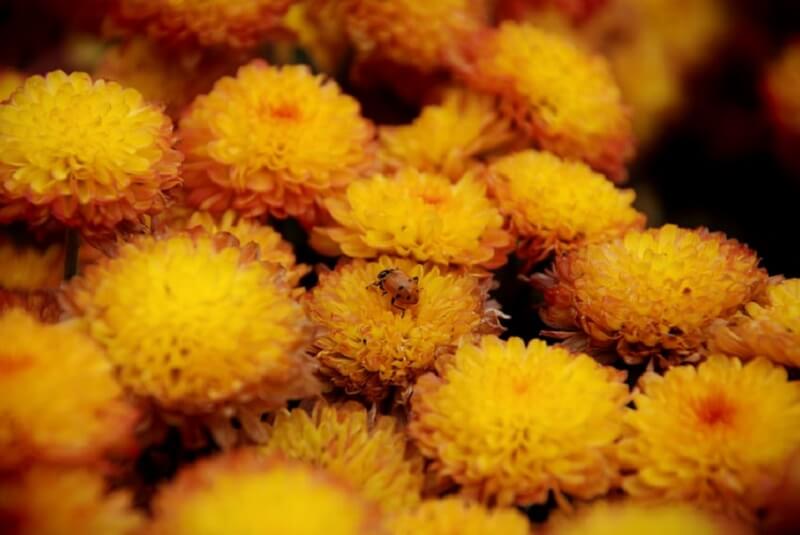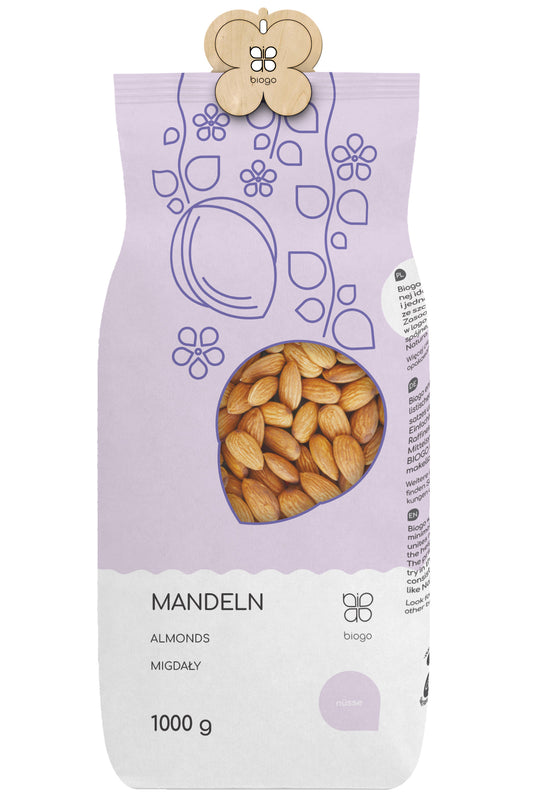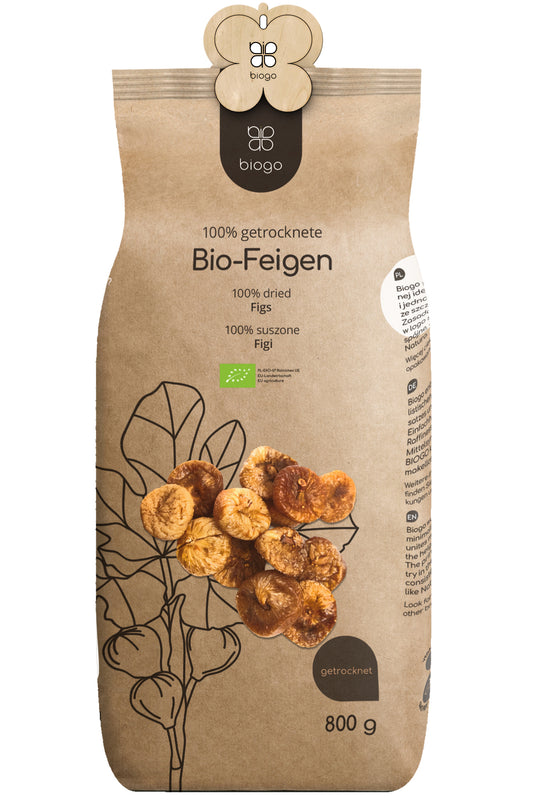CONTENU
- Tanaisie commune - Propriétés
- Qu'est-ce que la thuyone ?
- Comment utiliser la tanaisie ?
- Extrait de tanaisie pour insectes
- La tanaisie contre les parasites
- La tanaisie contre l'herpès
- La tanaisie pour les problèmes de peau
- Tanaisie et douleurs rhumatismales
- Contre-indications à l'utilisation de la tanaisie
- Résumé
La tanaisie est une plante aux multiples usages. Autrefois, il était consommé comme médicament pour toutes sortes de maladies. De l'avortement, au traitement de l'hystérie ou à la stimulation des menstruations. Le problème était que la tanaisie était une plante toxique. En fait, à court terme, il a réussi à éliminer ces symptômes. Malheureusement, il était tout aussi efficace pour provoquer d’autres effets secondaires qui ont finalement conduit à la mort. Malgré ces propriétés négatives, la tanaisie peut-elle nous être utile ? Nous allons essayer de répondre à ces questions et à d’autres.
Tanaisie commune - Propriétés
La tanaisie appartient à la famille des Astéracées. On le trouve dans toute l’Europe et dans les zones tempérées d’Asie. Elle s’est également propagée au-delà de ces régions. C'est une espèce commune en Pologne. C'est une plante vivace qui pousse jusqu'à 1,5 mètre de haut. En médecine populaire, la tanaisie était traditionnellement utilisée pour les problèmes du système digestif. Il a été largement utilisé pour soulager le foie après une consommation importante de repas gras. On lui attribuait également des propriétés diurétiques et digestives. Cette situation a radicalement changé après la découverte de la thuyone qu'il contenait. C'est la substance responsable de son goût et de son odeur spécifiques. À cette époque, la consommation de tanaisie était interdite et n'était autorisée que pour un usage externe.
Qu'est-ce que la thuyone ?
La thuyone est un composé chimique organique. Il est présent naturellement comme composant des huiles essentielles présentes dans certaines plantes. On le retrouve dans l’absinthe, la sauge et la tanaisie. La thuyone est facilement soluble dans les alcools et l'éther diéthylique. Cependant, il ne se dissout pas dans l’eau. En raison de cette propriété, il est devenu un ingrédient courant dans les teintures ou les alcools. L’une des plus connues est l’absinthe populaire, à laquelle on prêtait autrefois de fortes propriétés hallucinogènes. C'est grâce à la thuyone.
La thuyone elle-même est un poison. Des effets secondaires peuvent survenir après la consommation, surtout en cas de consommation excessive. Cela entraîne une augmentation de l’activité du cortex cérébral, qui se manifeste par de l’anxiété, de l’irritabilité et même une psychose. Une utilisation chronique peut entraîner une détérioration importante du système nerveux. Cela peut conduire à une paralysie, mais aussi à diverses maladies nerveuses. Il existe toutefois des exceptions à cette règle. « Tout est poison et rien n’est poison, car seule la dose fait le poison », disait Paracelse il y a des siècles. Cela signifie que dans des cas particuliers, vous pouvez utiliser la tanaisie sous forme d'infusion. Dans ce cas, la dose doit toutefois être soigneusement contrôlée.
Comment alors utiliser la tanaisie ?
Malgré tous ces effets négatifs, la consommation de tanaisie présente encore de nombreux effets positifs. Dans diverses herboristeries, on trouve le plus souvent de l'huile issue de ses fleurs. Il est destiné à un usage externe, principalement sur la peau. Il faut rappeler que sa concentration sous cette forme peut provoquer une irritation. Pour cette raison, il est très important de le diluer avant utilisation. La thuyone n’étant pas soluble dans l’eau, nous recommandons d’utiliser de l’alcool éthylique concentré pour ce procédé. L’alcool nature fonctionne mieux. Vous pouvez également acheter des préparations prêtes à l'emploi contenant de l'extrait de tanaisie. Suivez ensuite les instructions sur l'emballage.
La posologie ne doit pas dépasser 3 à 4 doses par jour, mais la portion ne doit pas dépasser 220 ml et à condition de suivre la recette ci-dessus. Si nous décidons d’acheter un produit prêt à l’emploi dans une pharmacie ou une herboristerie, nous devons suivre les directives du fabricant.
Extrait de tanaisie pour insectes
La tanaisie a une odeur caractéristique semblable à celle du camphre, c'est pourquoi elle repousse efficacement les insectes. Il peut être efficace contre les moustiques, les mouches, les pucerons et les fourmis. En général, il repousse la plupart des insectes populaires présents dans notre pays. C'est pour cette raison que la tanaisie était utilisée comme répulsif. L'herbe peut être écrasée puis frottée sur la peau. Il peut également être utilisé sous forme de solution à appliquer sur la peau.
La tanaisie contre les parasites
En raison de la teneur élevée en thuyone. La tanaisie était utilisée comme antiparasitaire. À cet effet, les solutions alcoolisées de tanaisie appliquées sur la peau sont les mieux adaptées. Il peut être utile pour se débarrasser des tiques, des poux, de la gale et des acariens. L'élimination des parasites du corps peut également être réalisée avec de la teinture de tanaisie, par exemple. Cela implique la nécessité de boire un liquide préalablement préparé. Cependant, l'Union européenne a interdit l'utilisation de la tanaisie en interne par une directive de 2006, ne laissant que la possibilité d'une utilisation externe des bienfaits de la tanaisie. Comme déjà mentionné, il existe des exceptions à cette règle. Une infusion de tanaisie en quantité contrôlée est excellente contre les ténias et les ascaris.
La tanaisie contre l'herpès
En médecine populaire, on sait depuis longtemps que la tanaisie a également un puissant effet antiviral. Après des recherches approfondies en Espagne et en Grande-Bretagne, il existe une indication claire. La tanaisie peut être efficace pour lutter contre le virus de l'herpès grâce à l'axlylarine qu'elle contient. De plus, au cours des recherches, il a été découvert que la tanaisie contient également du parthénolide, une substance dotée de puissantes propriétés anticancéreuses et anti-inflammatoires.
La tanaisie pour les problèmes de peau
Les ingrédients contenus dans la tanaisie peuvent être utiles pour de nombreuses affections cutanées. On parle d’acné, de peau sèche, mais aussi de gonflements. Depuis des siècles, il est utilisé sous forme de décoction comme moyen de friction sur des zones sélectionnées. Actuellement, il est utilisé sous forme de divers masques, mais aussi de solutions. Important à utiliser sur le visage. Il est préférable de choisir des produits à base d’eau et non d’alcool. Sous cette forme, il peut soulager la séborrhée, les impuretés cutanées excessives et donner à la peau une apparence saine.
Tanaisie et douleurs rhumatismales
En médecine populaire, l'extrait alcoolique de fleurs de tanaisie est utilisé pour soulager la douleur causée par la polyarthrite rhumatoïde ou l'arthrite (goutte). De plus, il peut également être utilisé comme remède temporaire contre les douleurs musculaires. En raison de la teneur en substances anti-inflammatoires.
Contre-indications à l'utilisation de la tanaisie
Contrairement aux apparences, il n’existe pas beaucoup de preuves justifiant de limiter ou d’arrêter l’utilisation des préparations à base de tanaisie. Tout d’abord, il n’est pas particulièrement recommandé aux femmes enceintes et allaitantes. Les personnes allergiques doivent également être prudentes, car la tanaisie peut contenir des substances qui provoquent de fortes réactions allergiques dans l'organisme. Cependant, en raison de la teneur en thuyone, il est recommandé d'exclure cette plante de l'alimentation en cas de maladies du système nerveux. De plus, les personnes souffrant de problèmes de coagulation sanguine doivent aborder ce remède avec prudence. Cette plante a de fortes propriétés abortives et hémorragiques. Étant donné qu’il s’agit également d’un composant de nombreux alcools, les personnes présentant des symptômes de dépendance à la thuyone doivent absolument l’éviter.
Résumé
On ne peut nier que la tanaisie est une plante potentiellement plus dangereuse que la plupart des herbes populaires utilisées à des fins médicinales. Mais cela ne change rien au fait que cela peut toujours nous être très utile. La clé du succès réside dans le dosage correct et la prudence. Utilisé en externe, il peut apporter de nombreux bienfaits à notre corps. En ce qui concerne les effets internes, la dose est le plus important. Il est donc conseillé de consulter un médecin avant de prendre des préparations à base de tanaisie par voie orale.
LE CHOIX DE L'ÉDITEUR
Dattes séchées 1 kg BIOGO
- £4.00
£5.00- £4.00
- Prix unitaire
- / par
Amandes 1 kg BIOGO
- £11.00
£13.00- £11.00
- Prix unitaire
- / par
Graines de tournesol décortiquées 1 kg BIOGO
- £3.00
£4.00- £3.00
- Prix unitaire
- / par
Mangue séchée bio 400 g BIOGO
- £10.00
- £10.00
- Prix unitaire
- / par
Mûres blanches séchées 500 g BIO
- £6.00
£7.00- £6.00
- Prix unitaire
- / par
Popcorn (grains de maïs) bio 1 kg BIOGO
- £6.00
- £6.00
- Prix unitaire
- / par
Curcuma moulu bio 500 g BIOGO
- £6.00
- £6.00
- Prix unitaire
- / par
Graines de chardon-Marie 1 kg BIOGO
- £4.00
- £4.00
- Prix unitaire
- / par
Figues séchées bio 800 g BIOGO
- £27.00
- £27.00
- Prix unitaire
- / par
Sac #changezbiogo coton v.2
- £3.00
- £3.00
- Prix unitaire
- / par






































































































































